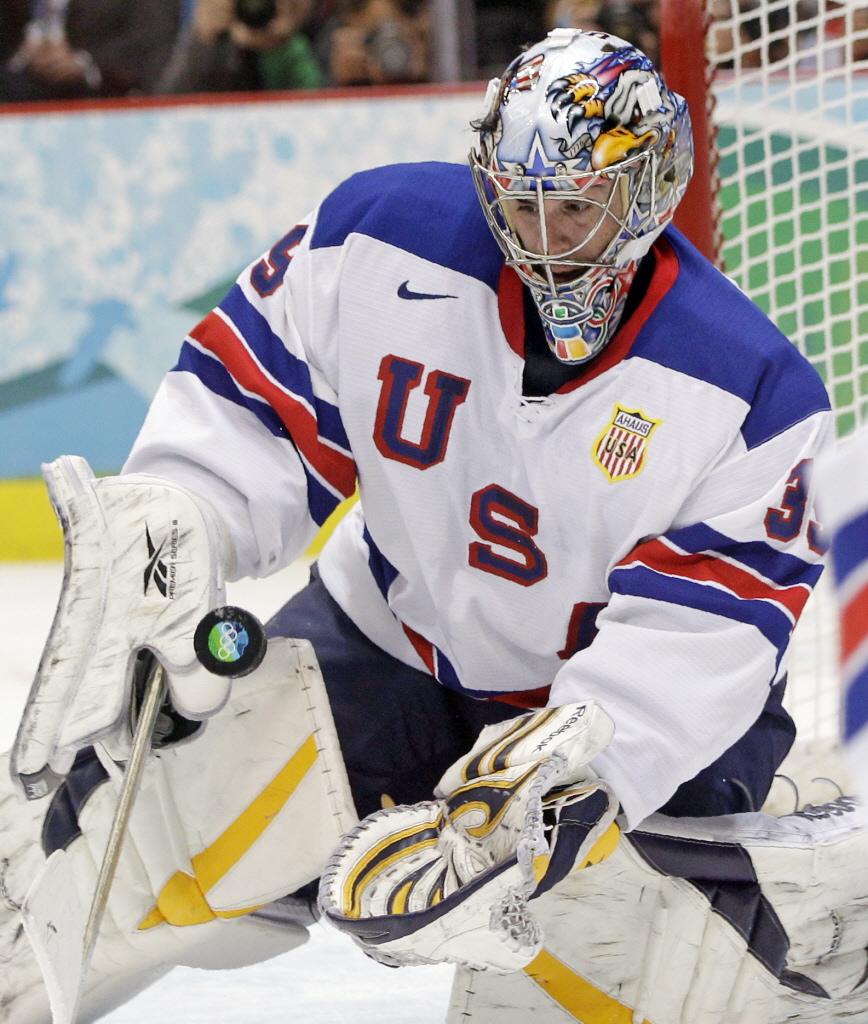US Hockey: Breaking Down the Path to a Medal
Image Courtesy of oregonlive.com
U.S. Goaltender Ryan Miller led the team to an unexpected silver medal in 2010.
Despite how vicious hockey fans can be to each other year in and year out, all is forgotten and American fans join together to cheer as one when the red-white-and-blue takes the ice on the world stage. This is especially true after a heroic effort from the underdog U.S. Team in 2010, which came just one goal away from swiping the gold from Team Canada—or was it the NHL all-stars? Who can tell the difference? Regardless, here are some key factors that will determine the fate of our US Ice Hockey team.
What do we have?
This year, the team that the U.S. has thrown on the ice is quite similar to that 2010 team, which includes the tremendous goalkeeping skills of Buffalo Sabres’ Ryan Miller, who posted an unheard of 1.35 Goals Against Average last Olympics. Miller has been less than stellar with his NHL club this year, as he has allowed 2.60 goals per game this year, almost double his previous Olympic average. The other two goaltenders on the team are talented enough to dethrone Miller, but not nearly as experienced; LA’s Jonathan Quick is one of the top 5 goalies in the NHL this year, and Jimmy Howard is the impressive netminder from hockeytown Detroit, but neither of them have seen a second of Olympic ice time. Regardless of who is in net, success for this team lies heavily on a reliable goalkeeper.
Helping Miller (or Quick (or Howard)) will be an extremely youthful yet talented defensive corps, with grinders Ryan Suter and Ryan McDonagh at the helm. These two Yankee defenders boast experience, but not age (they are 30 and 26 years old, respectively), and they are defined by a rigid American work ethic that may separate them from the global competition. Five of the U.S.’s eight blue-liners are 26 years old or less, so quick, young legs should be the primary advantage of this defensive unit.
Shifting to the offensive end of the ice, we find a plethora of talent the likes of which we have not seen on a U.S. hockey team perhaps in the country’s history. Three of our forwards, namely Joe Pavelski, Phil Kessel, and Patrick Kane, are in the top ten in points this year in the NHL; ironically, Canada is the home of the remaining seven, but if my math is correct, that means we have the second best offense in the tournament, which all Americans will be satisfied with. Among other returning skaters are Ryan Callahan, Zach Parise, and Ryan Kessler, who will all be even hungrier than they were four years ago for the gold. Newcomers, however, include an extremely familiar face; CBA-graduate James Van Riemsdyk of our very own Middletown, New Jersey will be supplying youth and energy to the team. These two traits seem to be the defining themes of this year’s team; just the kind of stuff that finds its way into a Disney movie starring Kurt Russell (hey, wait a minute…)
Who’s in our way?
The obvious gold medal favorite is team Canada, who also boasts the title of reigning champion, but other European countries are sure to give the U.S. team some trouble. The home ice Russians pose a serious threat, as would any team with the menacing Alex Ovetchkin on their side. The top two lines for the Russians are talented enough to compete with any team from any country you can think of, but two lingering problems (oddly similar to those faced by the Titanic) could spell out the team’s quick and disappointing demise: depth and pressure. Russia’s third and fourth offensive lines leave more than a little something to be desired, and after an unimpressive sixth place finish in 2010, the home crowd will be impatiently awaiting a medal this year.
Other serious contenders include the European countries of Finland and Sweden, primarily due to their superior goal-keeping corps. Finland carries a trio of more-than-solid NHL netminders in Tuukaa Rask, Antii Niemi, and Kari Lehtonen, while Sweden is the home country of the current “King of New York”: Henrik Lundqvist. It will be difficult to sneak anything by these experienced goalies, so expect some solid contention from these countries, as they both have potential to emerge as winners of their respective groups.
Final Prediction
Although Americans may expect big things from this exciting team of skaters, they may also underestimate the power of home ice, especially when that ice is 6000 miles away. The offense will be there for the first half of the tournament against some unimpressive goaltending, but our own net will not be as pristine as it was four years ago. The Americans lose in the bronze medal game, falling just a goal short of bringing home hardware.


